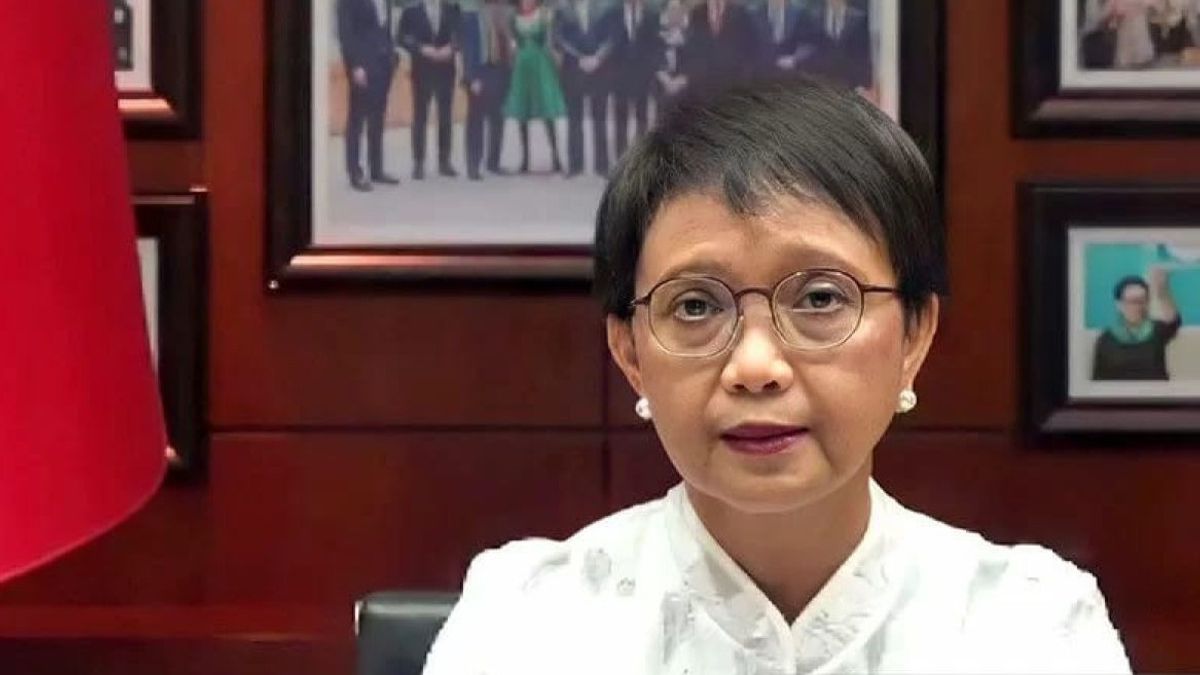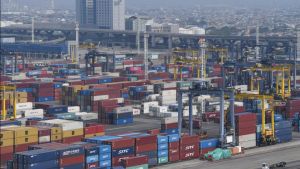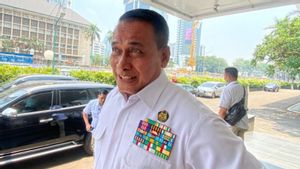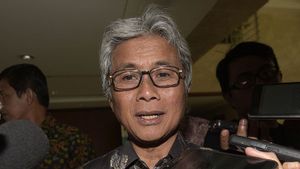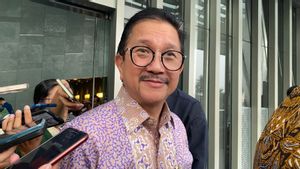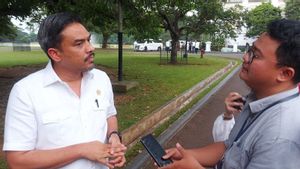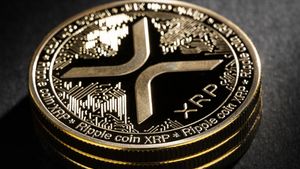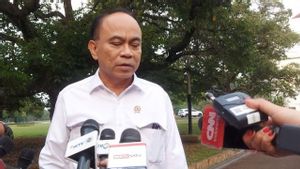JAKARTA - Foreign Minister Retno Marsudi said his ministry together with the Ministry of Investment/BKPM and the Ministry of Trade carried out a number of breakthroughs in economic diplomacy which had a major impact on the Indonesian economy in the last two years.
The first is economic diplomacy related to exports of economic trade which continues to increase over time.
Retno said, based on data from the Ministry of Foreign Affairs that was collected, from January to November 2023, Indonesia's export trade reached 439.1 billion US dollars.
"Tren ekonomi perdagangan ekspor kita dari waktu terus meningkat dan Indonesia mengalami surplus. Demikian juga investasi semakin banyak yang masuk." kata Retno dalam keterangan tertulis, Sabtu, 6 Januari 2024.
Another step from Indonesia's economic diplomacy policy is also seen in the holding of the 2022 Bali G20 Summit.
At the G20 Bali Summit, the Ministry of Foreign Affairs created a list of collaborated projects.
Retno also said a similar step was taken at the 43rd ASEAN Summit, where through the ASEAN-Indo-Pacific Forum (AIPF) Indonesia managed to obtain 93 projects with a value of 38.2 billion US dollars.
Another economic diplomacy breakthrough carried out by the Ministry of Foreign Affairs is through negotiations to reduce Indonesia's trade barriers. One of them is the Indonesia-European Union Comprehensive Economic Partnership Agreement (IEU CEPA) negotiations related to discrimination on Indonesian products, such as palm oil and also related to industrial downstream.
Indonesia itself continues to fight for downstreaming for all palm oil products that Europe opposes because they are considered environmentally damaging.
In fact, palm oil is more environmentally friendly than sunflowers and canola, which are mostly grown by European countries for cooking oil.
The palm oil tree can survive for 25 years, even 30 years.
While the sun flower, must be harvested every six months. At that time the sun or canola flower plants had to be cut down and replanted.
Indonesia's policy that angered Europe was when Indonesia stopped exporting nickel ore since 2020.
The policy was taken by President Joko Widodo (Jokowi) to increase added value for the country.
He said the added value of RI's nickel had jumped to around US$30-33 billion or around Rp450 trillion in 2022 from the previous time it was still exporting nickel ore of only US$1.1 billion or around Rp17 trillion.
"We are still trying to negotiate with the European Union for Indonesia regarding the IEU CEPA negotiations. Meanwhile, other negotiations have also been carried out with several African countries," said Retno explaining.
Regarding countries on the African continent, Retno explained, President Jokowi ordered Indonesia to expand the potential of other foreign markets such as on the African continent.
The expansion of the market to African countries carries the spirit inherited by the 1955 Asian Africa Conference known as Bandung Spirit.
"We really want to give meaning from Bandung Spirit which ignites the spirit between the south and south. Therefore, this year the President visited several African countries in the context of strengthening southern-south cooperation, including economic cooperation," said Retno.
SEE ALSO:
A number of the Ministry of Foreign Affairs' economic diplomacy breakthroughs also answered the accusation of Vice Presidential Candidate number 3, Mahfud MD, who said that the current condition is different from the capacity of Indonesian diplomats in ancient times who were very good at carrying out their duties.
The implication of this condition, Mahfud said that Indonesian diplomats did not understand the basics of diplomacy properly.
"If there are some parties who say our economic diplomacy does not exist, I think the data is talking," concluded Retno.
The English, Chinese, Japanese, Arabic, and French versions are automatically generated by the AI. So there may still be inaccuracies in translating, please always see Indonesian as our main language. (system supported by DigitalSiber.id)
